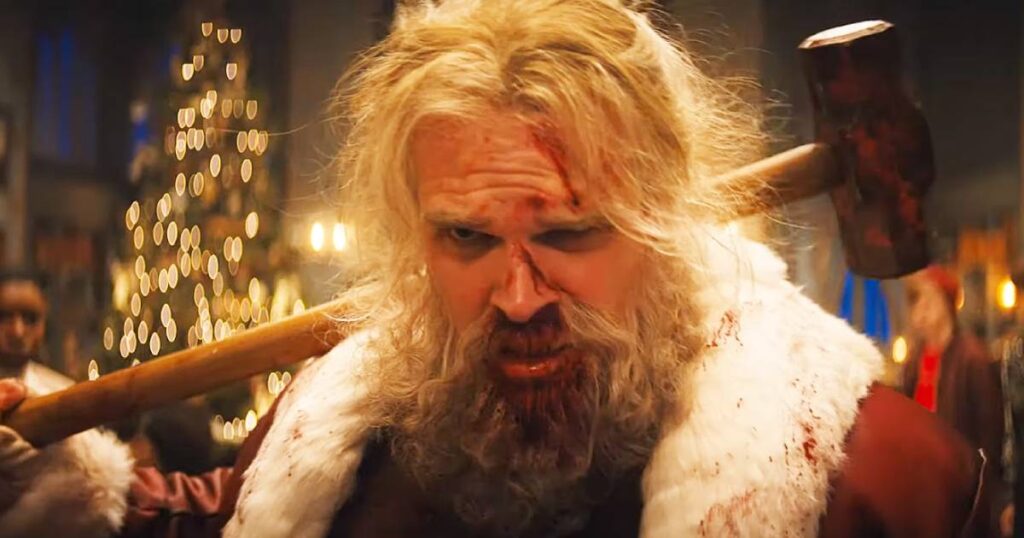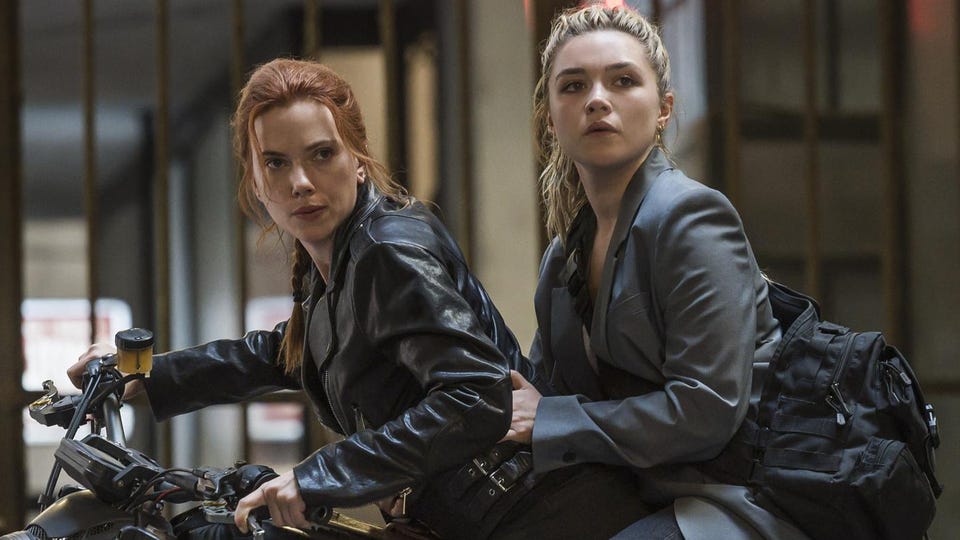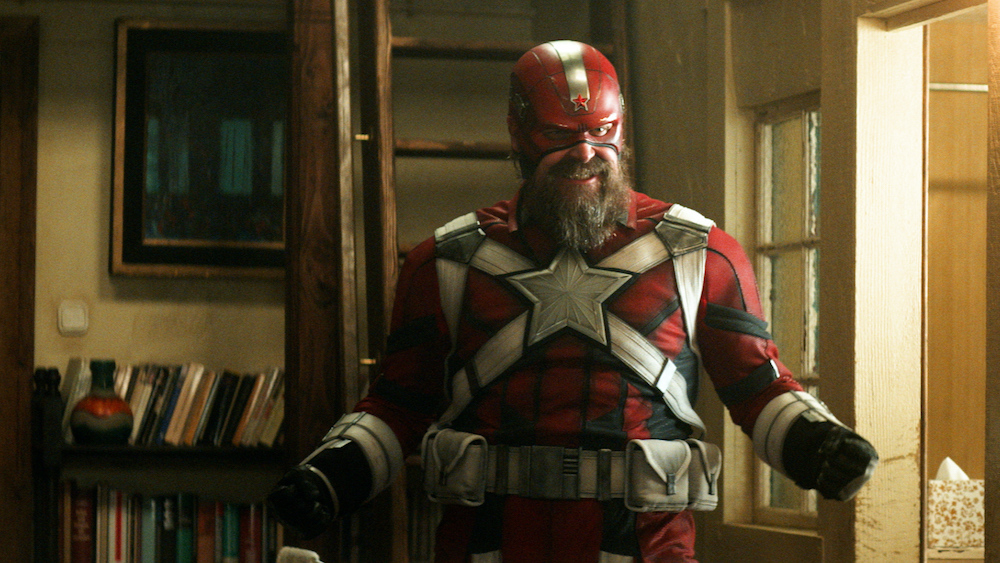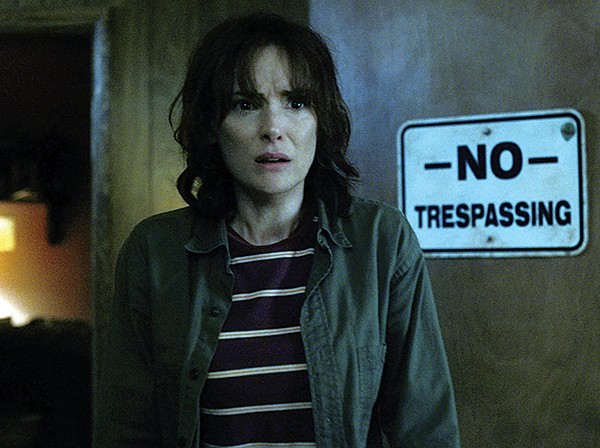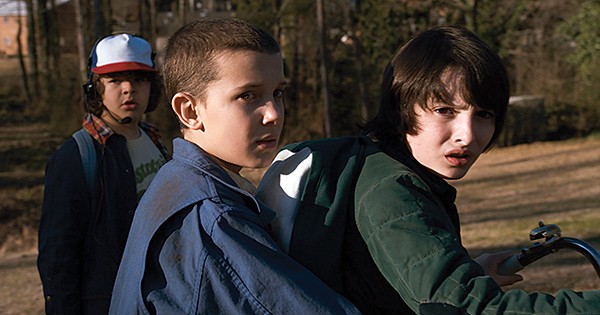When it comes to film and TV, my viewing experience is different from yours. The average American sees four films in the theater every year. In 2019, I’m on pace to see well over a hundred films in theaters and probably at least an additional hundred films at home.
I’m also a filmmaker, which makes me a functionalist. When I watch something, I think in terms of what works and what doesn’t. Does a scene do what the filmmaker intended it to do? Does it transmit the information and convey the emotional impact needed at this moment in the piece? “Does it work?” is a subtly different question than “Is it good?” A film or show can “work,” but the piece itself can be bad. Clint Eastwood’s American Sniper is one of the most loathsome films of the decade, but it works because it effectively uses all the little tricks of film grammar to make you sympathize with a guy we first meet slaughtering Iraqi women and children. I recognize the craftsmanship, but you couldn’t pay me to watch it again — and I got paid to watch it the first time.
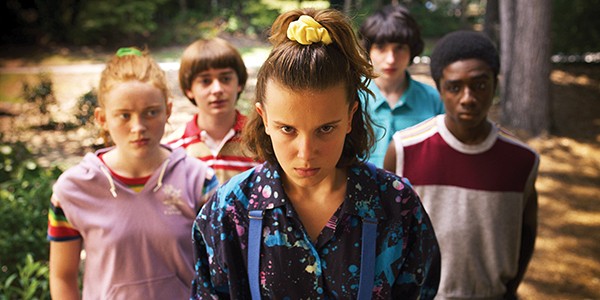
(l to r) Sadie Sink, Noah Schnapp, Millie Bobby Brown, Finn Wolfhard, and Caleb McLaughlin
It’s easy for me to crawl up my own … crawlspace and just tell everybody to pack it in and go watch Shoplifters because the modest little Japanese film about a dysfunctional family of petty criminals rocked my world. But as a reviewer who writes for a general audience, I feel like it’s my duty to be aware of and reveal my biases, so even if you don’t agree with me, you can say, “Well, he wasn’t into Fast & Furious 27: Bald Men Punching Each Other, but it sounds like something I’d like.”
All this is to say, I am an absolute sucker for Stranger Things.
Yeah, there it is. I admit it. Matt and Ross Duffer have my number. I am powerless against their Spielbergian riffing. I understand at some level that Stranger Things, whose third season premiered on Netflix on Independence Day, is basically just Happy Days if it was set 30 years later and directed by John Carpenter. I understand that I would use “cheap ’80s pastiche” as a withering criticism for most other shows. I think the level of nostalgia the show trades in is probably unhealthy. And yet, here I am, ravenously chomping down on it and then sopping up the sauce with a biscuit.
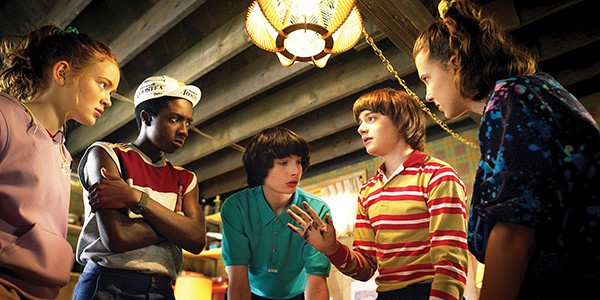
In my defense, Stranger Things still works. The ensemble cast of teenagers, led by English actress Millie Bobby Brown as the psychic superweapon known as Eleven, is one of the finest on any screen right now. And at least there is an acknowledgment of the passing of time. The first season’s core group — The Party, as they refer to themselves in D&D terms — of Mike (Finn Wolfhard), Lucas (Caleb McLaughlin), Will (Noah Schnapp), and Dustin (Gaten Matarazzo), with the second season addition of Max (Sadie Sink), begin season three united, then, as any group of kids do, start to slowly come apart. Dustin’s pet project Cerebro, named for Professor X’s telepathic enhancer, is really just a souped-up shortwave antenna he wants to use to contact his girlfriend from Utah he met while away at summer camp. Sure, like he’s got a girlfriend in Utah, right?
The onset of puberty is hitting The Party pretty hard. Will and El have discovered puppy love, until her guardian Hopper (David Harbour) intervenes, and Max teaches El when it’s time to “dump his ass.” This group discord comes at an inopportune time, as mysterious forces are once again messing with the portal to the Upside Down, and the spectral Mind Flayer is back, this time with a side order of Invasion of the Body Snatchers.
The Reagan ’80s had a lot of good movies, but there was a lot not to like. Stranger Things season three points more clearly toward the bad parts, beginning with the soundtrack. The first two seasons were awash with the rediscovery of vintage synth sounds, while the new crop of songs draws from the pop sludge that dominated the airwaves in 1985. The corporate colonization of the economy is represented by the new mall, which is shiny on the surface but evil on the inside. Joyce (Winona Ryder, effortlessly incredible) feels her job in Downtown slipping away and distracts herself with yet another paranormal investigation. Economic insecurity manifesting as creeping paranoia was a subtext in the ’80s horror and sci-fi films the show references, and that remains as relevant as ever. Maybe William Faulkner understood the real secret of Stranger Things‘ success when he said, “The past is never dead. It’s not even past.”


